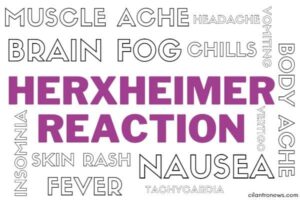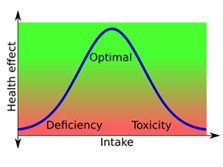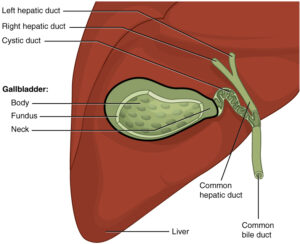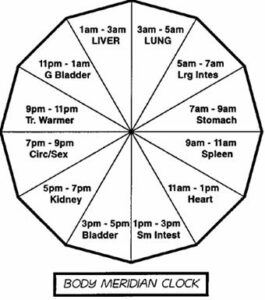Health Yourself


Overall goals for maintaining a healthy body
- Strong immune system
- Free of toxins and harmful microbes
- Functioning elimination organs – intestines, liver, kidneys, spleen, lymph
- Wholesome, balanced nutrition, exercise, plenty of good water, sunlight, balanced emotions, clean air / oxygenation, rest, spiritual connections, healthy sex
- Good dental health
- Natural electromagnetic fields

Nutrition
DO’s
General
- Wash hands before handling food
- Don’t burn or over-cook food
- Use an air fryer. Not a deep fryer
- Use avocado oil or expeller-pressed coconut oil for frying. Doesn’t form toxic fats with hot temps
- Don’t use scratched up non-stick pans.
- Use lots of herbs and spices in recipes (antioxidants); do not use regular salt, use sea / Himalayan salt (trace minerals),
- Don’t keep leftovers unfrozen for more than a day. Use soon after freezing.
- Prefer fresh over frozen. Canned beans and tomatoes are ok for convenience.
- Choose organic dairy and meat and eat small portions. Buy organic fruits and vegetables in the “dirty dozen” list.
- Good nutrients. Antioxidants / vitamins, enzymes (for optimal digestion), protein, good fats (ensure sufficient omega-3), foods that control blood sugar, balance alkaline- /acid-forming foods and cooked / uncooked foods.
- Use medium-sized (not large) plates for main meal for obvious reasons 🙂
- Test for food allergies (e.g. wheat, corn, dairy, eggs).
‘No-brainers”
- ‘No-brainer’ Ingredients: in Daily “Make-it-Happen” smoothie to ensure a daily sufficiency of omega-3 (including lignans and fiber in flaxseed), vitamin C, magnesium, vitamin D, iodine and more
Beverages
- Best: Spring water, matcha tea, lemon juice (diluted)
- Moderate caffeinated drinks
Vegetables
- Special mention: Asparagus, avocado, beet, carrot, celery, radish, squash
- Cruciferous vegetables (brussels sprouts, broccoli, cauliflower, cabbage, kale)
- Leafy greens / Salads
- Seaweed (high iodine content)
- Sprouts (but not alfalfa)
- Allium family: chives, garlic, onions, leeks, shallots, scallions
- Mushrooms: maitake, shiitake, white button
Fruit
- Ripe. Not over ripe
- Organic. Or well rinsed or better spray with hydrogen peroxide or soak in bicarbonate of soda water. Some fruit and veggies on the dirty dozen list are better bought organic
- Minimal high glycemic fruits: ripe bananas, mangos, pineapple, fig, grapes, watermelon, cantaloupe
- High vitamin C: guava, kiwi, orange
- High antioxidant polyphenols: berries, red / black grape (resveratrol, anthocyanins)
- Of special mention: tomato (prevents prostate cancer)
Grains
- Soaked or sprouted
- Bread – best sprouted grain or genuine sourdough
- Low blood sugar spike grains: Brown rice, barley, pearl barley, quinoa
Legumes
- Best sprouted
- Of mention: lentils, mung beans, organic / fermented soybeans (tempeh, miso)
Nuts
- Raw or lightly roasted (removes phytate)
- Especially: coconut, brazil nuts (selenium), almond, walnut (omega-3)
Seeds
- Best sprouted
- Especially: sunflower, pumpkin, fresh ground flaxseed (omega-3, fiber, lignans)
Dairy
- Only organic, grass-fed milk (otherwise grain- fed and likely treated with milk-increasing antibiotics, and some with genetically modified rBGH); butter concentrates toxins)
- Best: unpasteurized from clean source, grass-fed, unhomogenized, full-fat, and cultured/fermented
- Aged cheese. Cheddar, parmesan, gruyere, gouda. Aging process reduces lactose (easier to digest), increases probiotics in some cheeses.
Eggs
- Organic, pastured eggs
Seafood
- Wild fish, from non-toxic water
- With fins and scales e.g. not catfish, shark etc
- NO shellfish (“clean-up crew” in the water)
- Omega-3
- Alaskan salmon, sardines, herring, rainbow trout
Meat
Animals:
- Small portions
- Toxin-free: animals that chew the cud and have split hooves. e.g. not pork or rabbit; organic; not under-cooked (animal meat can be infected), remove covering fat (stores toxins);
- Grass-fed
- Best: Lamb, beef, goat, bison/buffalo, deer
Birds:
- Clean. Not scavengers
- Pastured (grass /bugs provide anti-inflammatory omega-3, all-grain diet is predominantly inflammatory omega-6)
- Best: chicken, turkey, duck
Fats / Oils
- Cooking / Frying: Use avocado oil, palm oil or expeller-pressed coconut oil for frying; butter good for low-temperature cooking. Avoid typical grocery store cooking oils (omega-6 rich, usually GMO and toxic from processing) e.g corn oil, canola oil, sunflower oil
- Olive oil (Virgin or extra virgin). Good for cooler recipes, such as salad dressing (olive oil and vinegar)
Spices
- Use liberally – for their antioxidants and for flavor
- Especially: turmeric (contains curcumin), ginger, cayenne (circulation), celtic / himalayan salt (trace minerals) +++
Miscellaneous
- Fermented foods: sauerkraut, fermented beans, kombucha, buttermilk (anti-cancer, gut health)
- Soup (retains vitamins). use bone broth for collagen
Supplements
- Chart of recommended daily supplements. Of special mention: flaxseed (fiber, omega-3), probiotics (gut health)
DON’Ts
Avoid
- Pasteurized fruit juice (heat-processed and reconstituted using chemical designer flavors)
- High fructose corn syrup (processed differently to sugar – and particularly fattening)
- All artificial sweeteners (toxic). E.g. sucralose, aspartame.
- Table salt. Use sea or Himalayan salt (trace minerals)
- Non-fermented soy. GMO. (All soy is estrogenic)
- Hydrogenated / partially hydrogenated oils or fats. E.g. Margarine, most grocery store oils, many processed foods
- Farm-raised fish (raised in toxic conditions on unnatural diet), shellfish
- Pork, rabbit
- Non-organic animal products
Minimize
- Sugar in all its forms. Cane, honey, maple syrup, agave, molasses
- High glycemic foods (especially don’t eat on empty stomach)
- “White foods”: rice, flour, pasta
- Non-sprouted wheat and bread
- Breakfast cereals (except sprouted)
- Canned foods
- Refined / Processed foods (often contains sugar or HFCS, soybean oil (GMO), forms of MSG, artificial colorings / flavorings, preservative chemicals)
- Microwaved foods
- Drugs / smoking / alcohol

Other Considerations
- Use full-spectrum lighting (natural frequencies)
- Take a daily sunbath between 10 am and 2 pm. Sun high in the sky is most efficient for making vitamin D. Don’t use sunscreen, but go inside before you turn pink.
- Sleep in a dark room with a consistent schedule. Use blue light filters on computer screens at night. Use dim orange / red nightlights. Blue light is shown to lower melatonin production and disrupt circadian rhythms more than other colors in the visible light spectrum. BTW – LED lights produce more blue light.
- Avoid unnatural electromagnetic fields
- Be at peace with God, yourself and others
- Not wearing a bra significantly lowers breast cancer risk. Especially if wired
























